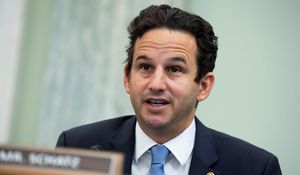Brazilian trade with Arab countries has reached new heights, showcasing economic growth and increasing competition achievements within the Arab world. According to data from Brazil's Ministry of Development, Industry, Trade, and Services, the trade surplus with Arab countries soared to USD 13.5 billion in 2024, marking a remarkable 55.4% increase compared to the previous year.
Last year, exports to these countries hit USD 23.68 billion—up by 22.41% from 2023—while imports fell to USD 10.18 billion, representing a 4.4% decrease, indicating not only favorable trading conditions for Brazil but also growing economic ties with the Arab region. The total trade volume reached USD 33.87 billion, reflecting growth of 12.9% from the previous year.
The United Arab Emirates emerged as the top destination for Brazilian exports, racking up purchases worth USD 4.5 billion—an impressive 43.57% increase over 2023. Egypt also demonstrated significant growth, with its imports of Brazilian products rising by 72.29% to reach USD 3.9 billion. While Saudi Arabia experienced a slight downturn, reducing imports by 2.83% to USD 3.1 billion, it remained one of Brazil's key trade partners.
Mohamad Mourad, Secretary-General of the Arab-Brazilian Chamber of Commerce (ABCC), attributed Brazil's impressive performance to various factors. "First, there’s a high demand for commodities due to population and economic growth, especially in the Gulf. Second, because [Arab countries] rely on food security, and third, because agribusiness in Brazil is extremely efficient, producing with high quality and at competitive prices," Mourad stated.
Leading exports from Brazil to Arab nations included sugar—which accounted for USD 6.6 billion (+34.07%)—chicken meat at USD 3.5 billion (+9.3%), and iron ore priced at USD 3.07 billion (+9.2%). Brazil's import composition primarily consisted of petroleum and mineral oils worth USD 5.08 billion (-12.7%) and fertilizers totaling USD 3.3 billion (-7.7%).
While Brazilian exports are booming, there remains ample opportunity for growth in the export of manufactured goods to the Arab world. Mourad emphasized the potential for increased sales of machinery, pharmaceuticals, cosmetics, and civil construction material, contingent on focused promotion efforts.
On the competitive front, the Egyptian Competition Authority (ECA) garnered accolades at the fourth annual Arab Competition Network (ACN) conference conducted recently. The ECA was awarded the "Competition Policy Award" for its guidelines on vertical agreements, demonstrating its commitment to enhancing collaborative efforts among Arab nations on competition laws.
ECA Chairperson Mahmoud Momtaz's leadership was recognized during the conference, where he underscored the need for cooperation between Arab states to combat cross-border anti-competitive practices. He stated, "The ACN is a platform for Arab states to cooperate on competition matters, particularly as we address these practices collectively. We need more integration among competition authorities to enforce our policies effectively.
This conference featured sessions on the economic impacts of competition policies, stressing the importance of international collaboration as economies increasingly require adaptive regulatory frameworks to address complex market dynamics. Momtaz proposed innovative platforms for sharing non-confidential information among competition authorities and enhancing regional ties through regular meetings.
Momtaz also noted the ACN's role as central for Arab nations aiming to strengthen their oversight of competition laws. He advocated for broader enforcement measures across specific markets, emphasizing digital markets' challenges where individual authorities struggle to identify and address anti-competitive behavior.
The ACN, formed under the League of Arab States, aims to support dialogue on competition issues, making strides toward collaboration within the region to improve policy transparency and enforcement.
Overall, Brazil's significant trade achievements coupled with the ECA's recognition signal burgeoning cooperation and economic interaction between Brazil and Arab states. With the right strategic initiatives, both regions stand poised to expand their trade relationships and improve their economic footing on the global stage.



